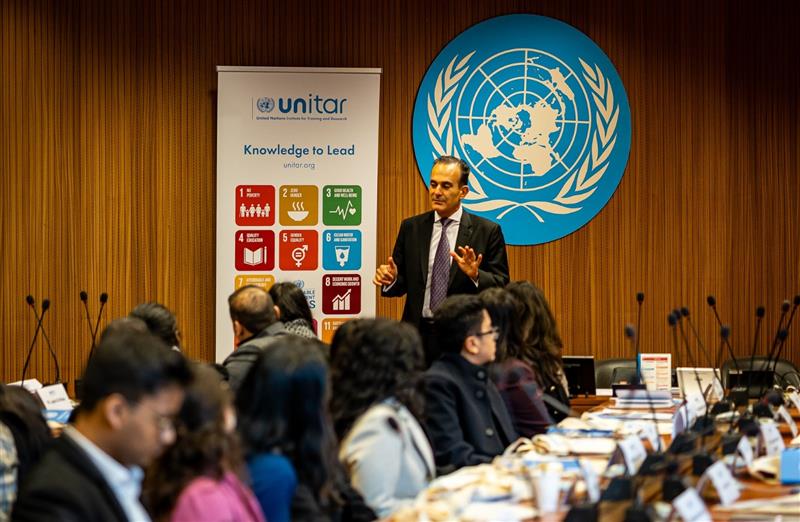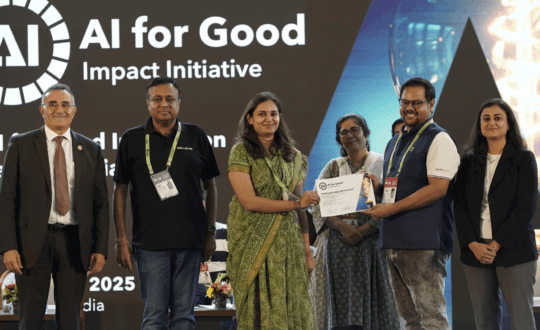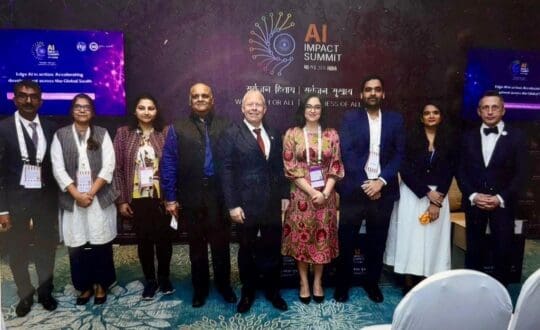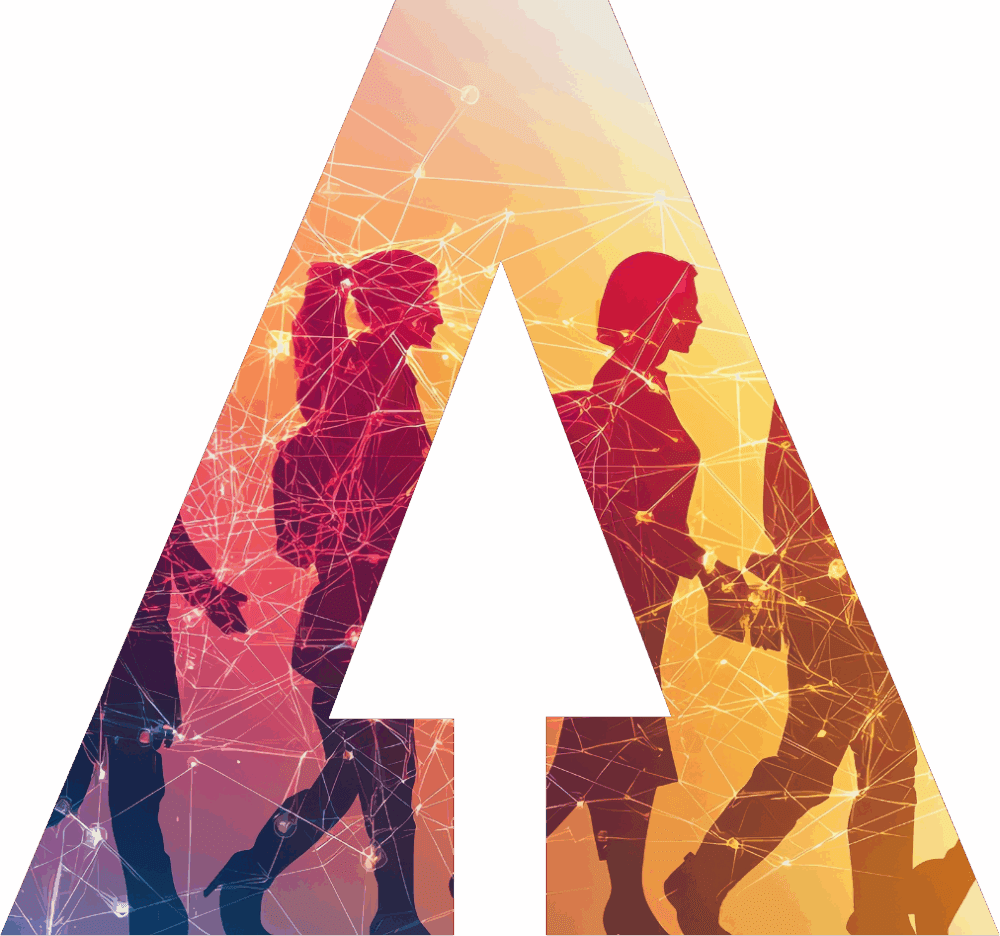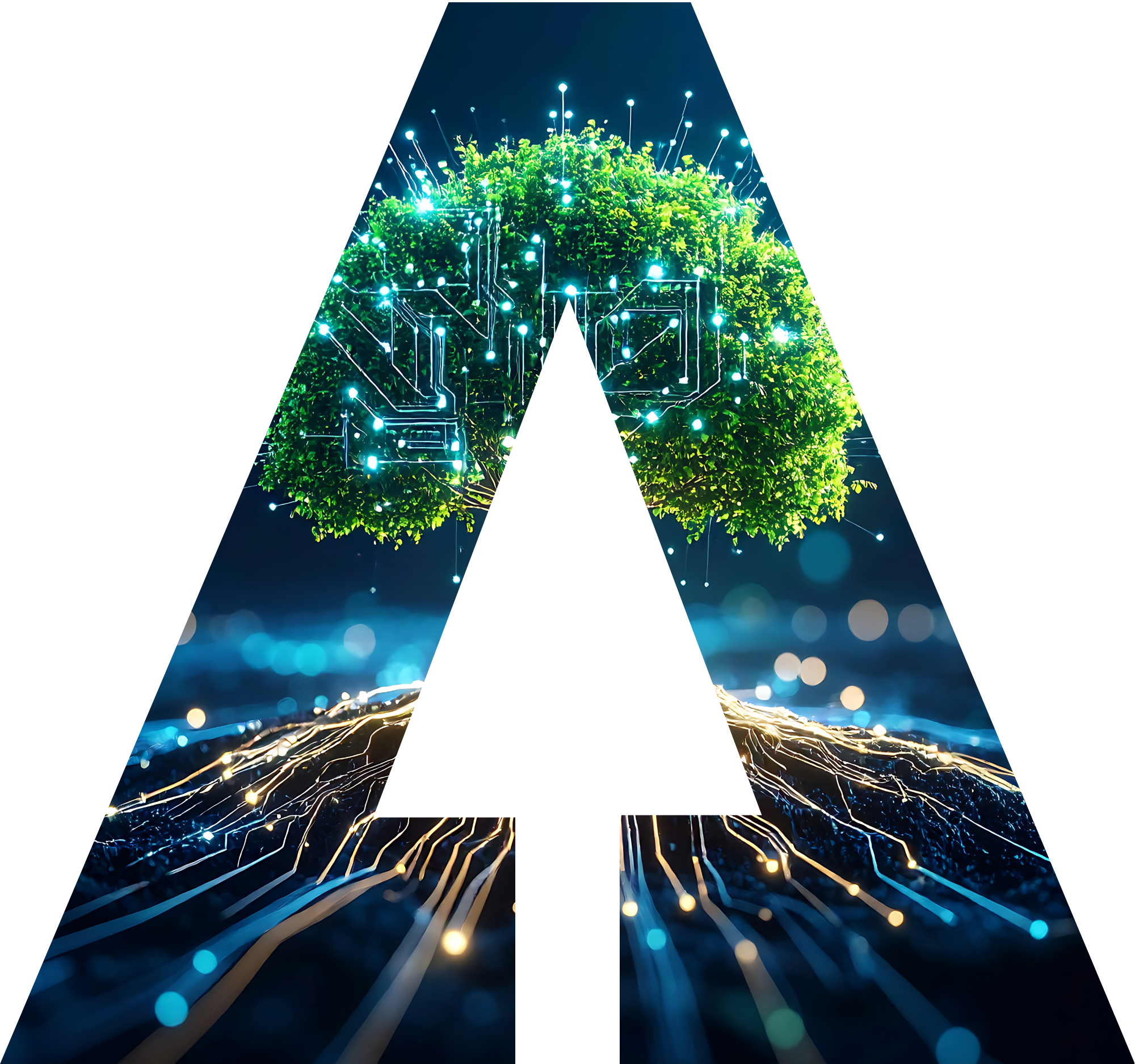On May 22, 2025, a high-level Briefing on Open-Source Artificial Intelligence was hosted at ITU, organized by the United Nations Institute for Training and Research (UNITAR) under the scope of the AI Skills Coalition. Tailored specifically for Geneva-based Permanent Missions and diplomats, the face-to-face briefing is the first example of an in-person activity led by a partner of the AI Skills Coalition to bring about forward-looking and inclusive approaches to AI literacy and capacity-building.
Moderated by Dr. David Manset, Senior Project Coordinator of the EU-funded OSEE Project (Open Source Ecosystem Enablement for Public Services Innovation) at ITU, the session provided a foundational overview of the open-source AI landscape and its intersection with diplomacy.
Artificial Intelligence – especially its open-source variants – is no longer a niche innovation but a crucial element of digital transformation across sectors. From climate modelling to global health, AI systems are trained on publicly available datasets, becoming increasingly instrumental to different usages. For diplomats and international civil servants, understanding these dynamics is crucial, not only to stay informed but to help shape ethical and inclusive governance frameworks. UNITAR’s expertise in the domain of diplomatic training, as well as its engagement under the AI Skills Coalition paved the way for the creation of this important activity, aimed at equipping delegates with the strategic knowledge and skills to navigate new tools and issues related to the use of open-source AI in diplomacy.
The session, attended by over 35 participants both in person and online, was opened by tracing the evolution of generative AI, beginning with early statistical models and culminating in today’s complex architectures. Dr. Manset explained how foundation models – particularly large neural networks designed to handle a range of downstream tasks – have redefined opportunities in both public and private sector. Ranging from large language models like GPT and LLaMA to image and speech generation systems, generative AI now operates at a scale that can produce human-like outputs.
A significant portion of the discussion focused on the difference between open-source and proprietary AI models. Dr. Manset clarified that while both categories rely on similar underlying architectures, their accessibility and transparency set them apart. Open-source models, whose code and often even training data are available to the public, allow developers and institutions to adapt and deploy AI systems independently of large tech providers. Participants were also introduced to the core components of generative AI models, including training data, model parameters, and inference mechanisms. Through this lens, diplomats gained a clearer understanding of why certain models perform better on specific tasks, and how biases in training data can result in unintended social or political consequences.
By the end of the session, one message resonated clearly: understanding the architecture of AI is no longer optional for diplomats – it is crucial. As generative AI keeps
evolving and embed itself in every aspect of global governance, the ability to navigate its different dimensions is ever more a core diplomatic skill. In this light, initiatives such as this briefing reflect the AI Skills Coalition’s commitment to supporting governments and international practitioners in ensuring that the benefits of AI are equitably shared and responsibly governed.


 Register here
Register here